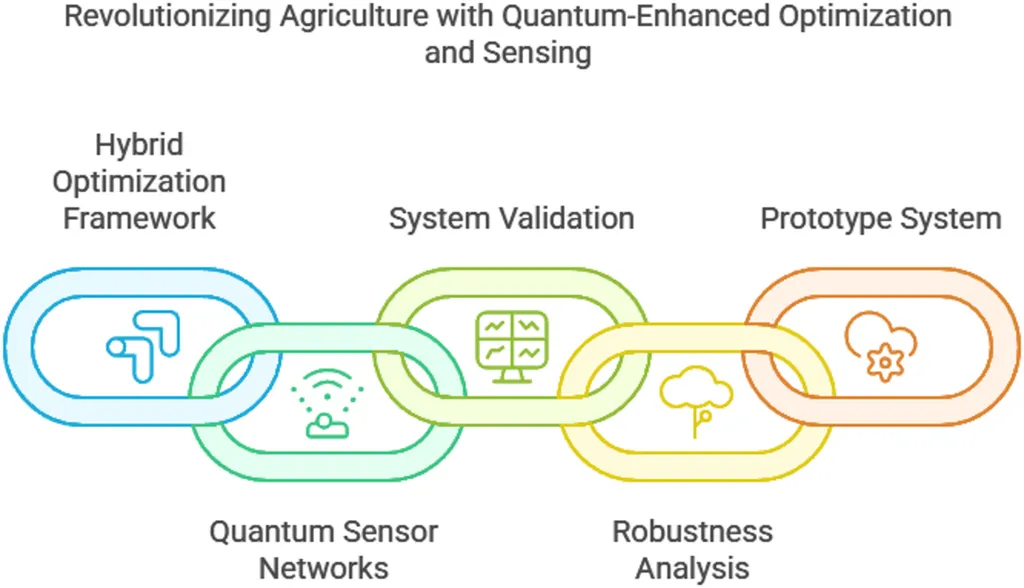In the ever-evolving landscape of precision agriculture, researchers are constantly seeking innovative ways to optimize energy efficiency in agricultural wireless sensor networks (AWSNs). A recent study published in *Scientific Reports* introduces a groundbreaking approach that could revolutionize how we manage energy consumption in these critical systems. The research, led by Jiawei Zhao from the School of Energy and Materials at Shihezi University, proposes a Quantum Adaptive Clonal Genetic Algorithm (QACGA) designed to enhance clustering efficiency and extend the lifespan of AWSNs.
AWSNs are indispensable tools for real-time monitoring in modern farming, enabling farmers to gather data on soil moisture, temperature, and crop health with unprecedented accuracy. However, the limited energy supply of these networks poses a significant challenge, as replacing batteries in large-scale deployments is often impractical. The QACGA algorithm addresses this issue by integrating quantum-inspired adaptive operators with dynamic adjustments in cluster-head selection, mutation, and cloning rates. This multi-faceted approach considers node distribution, residual energy, and communication distance, resulting in a more efficient and stable clustering process.
The simulation results are promising, demonstrating that QACGA can reduce energy consumption by up to 38.1% compared to other established clustering algorithms. “Our findings highlight the potential of QACGA as a robust and practical optimization framework,” Zhao explains. “By extending the network lifetime and improving clustering stability, we can provide new benchmarks for energy management in AWSNs, which is crucial for the advancement of smart agriculture.”
The commercial implications of this research are substantial. For farmers and agricultural businesses, the ability to deploy more energy-efficient AWSNs means reduced operational costs and increased reliability in data collection. This can lead to better decision-making, improved crop yields, and more sustainable farming practices. As the agriculture sector continues to embrace digital transformation, innovations like QACGA will play a pivotal role in shaping the future of precision agriculture.
The study also opens up new avenues for further research and development. As Zhao notes, “The integration of quantum computing principles with genetic algorithms offers exciting possibilities for future applications.” Researchers may explore how these principles can be applied to other areas of agricultural technology, such as autonomous farming equipment or advanced data analytics.
In conclusion, the introduction of QACGA represents a significant step forward in the quest for energy-efficient AWSNs. By providing a more stable and cost-effective solution, this research not only addresses a critical challenge in precision agriculture but also paves the way for future innovations. As the agriculture sector continues to evolve, the insights gained from this study will be invaluable in driving the development of smarter, more sustainable farming practices.

